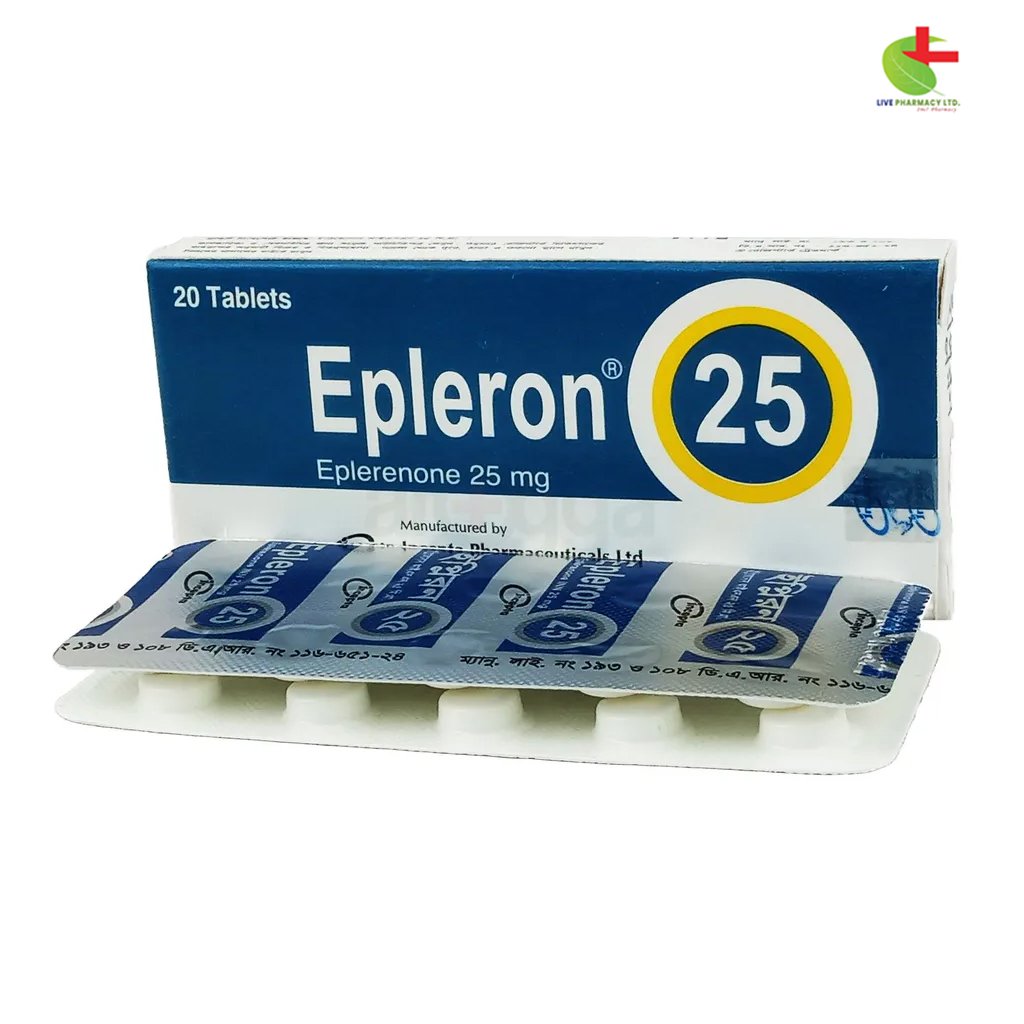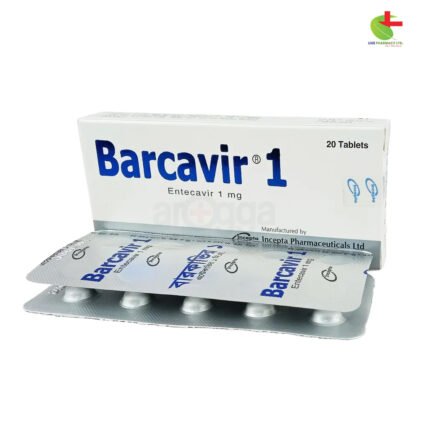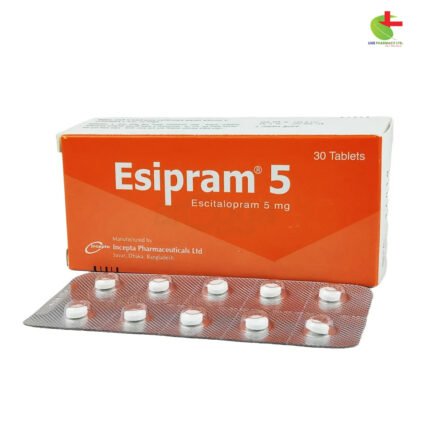Epleron 25
300.00৳ Strip
- Epleron treats congestive heart failure after acute myocardial infarction and hypertension.
- It acts as an aldosterone receptor antagonist, regulating blood pressure.
- The medication is prescribed for adults and should be taken as directed by a healthcare professional.
- Always consult your doctor for personalized advice and dosage.
 Brand
Brand
|
Incepta Pharmaceuticals Ltd |
|---|---|
 Generics
Generics
|
Eplerenone |
 Type
Type
|
Tablet |
Indications for Use
Epleron is prescribed for:
- Management of congestive heart failure following an acute myocardial infarction.
- Treatment of hypertension.
Always consult a registered healthcare professional before use.
Pharmacology
Eplerenone is an aldosterone receptor antagonist that effectively blocks the binding of aldosterone at the mineralocorticoid receptor. By inhibiting this binding, Eplerenone disrupts the renin-angiotensin-aldosterone system (RAAS). Aldosterone, primarily synthesized in the adrenal glands, raises blood pressure by promoting sodium reabsorption in various tissues, including the kidneys, heart, and blood vessels. Eplerenone leads to increased plasma renin and serum aldosterone levels, yet maintains its therapeutic effects by overcoming these elevations.
Dosage & Administration
- For Congestive Heart Failure: The recommended initial dose is 25 mg once daily, which can be titrated to 50 mg once daily within four weeks, as tolerated. Eplerenone can be taken with or without food.
- For Hypertension: The starting dose is 50 mg once daily. If blood pressure control is insufficient, the dose may be increased to 50 mg twice daily. Higher doses are generally not advised due to an increased risk of hyperkalemia.
- Pediatric Use: Safety and effectiveness in pediatric patients have not been established.
- Geriatric Use: No significant differences in safety or efficacy have been observed in elderly patients.
Always follow the guidance of a registered healthcare professional when using this medication.
Drug Interactions
Eplerenone may increase the risk of hyperkalemia when combined with ACE inhibitors, angiotensin receptor blockers, ciclosporin, tacrolimus, or trimethoprim. It can reduce the antihypertensive effects of NSAIDs, glucocorticoids, and tetracosactide, while enhancing the effects of α1-blockers, TCAs, amifostine, baclofen, and neuroleptics. Mild to moderate CYP3A4 inhibitors, such as fluconazole and erythromycin, may elevate Eplerenone plasma levels.
Contraindications
Eplerenone is contraindicated in individuals with hyperkalemia, severe renal impairment (creatinine clearance less than 30 ml/min), and severe hepatic impairment. Its use with potent CYP3A4 inhibitors and other potassium-sparing diuretics is also prohibited.
Side Effects
Common side effects may include headache, dizziness, diarrhea, abdominal pain, nausea, and flu-like symptoms. Serious allergic reactions, such as rash, swelling, severe dizziness, and difficulty breathing, may also occur.
Pregnancy & Lactation
Eplerenone should only be used during pregnancy if the potential benefits outweigh the risks to the fetus. Its presence in human breast milk is unknown; therefore, nursing mothers should decide whether to discontinue breastfeeding or the medication, based on the drug’s importance to the mother.
Precautions & Warnings
Caution is advised when using Eplerenone in patients with hyperkalemia, severe renal disease, or diabetes, particularly those with congestive heart failure following an acute myocardial infarction.
Therapeutic Class
Eplerenone falls under potassium-sparing diuretics and aldosterone antagonists.
Storage Conditions
Store Eplerenone below 30°C in a cool, dry place, away from light and moisture. Keep out of reach of children.













Reviews
There are no reviews yet.